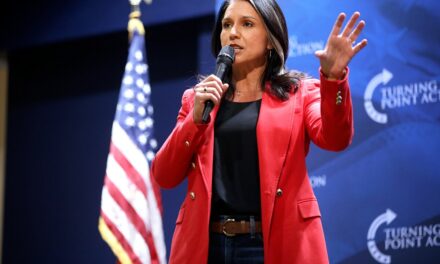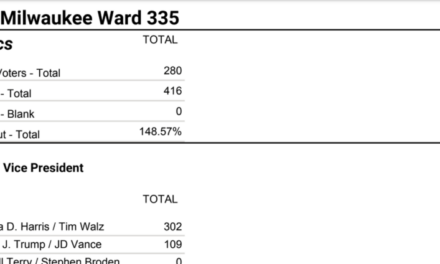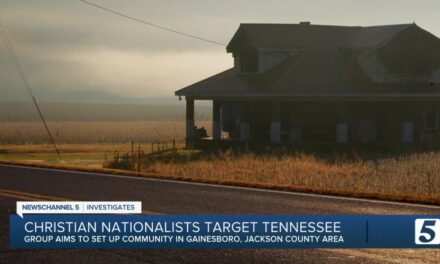We support our Publishers and Content Creators. You can view this story on their website by CLICKING HERE.
American justice has become politicized — a weapon against enemies with hall passes for favored groups. Attorney General Merrick Garland, Manhattan District Attorney Alvin Bragg, and dozens of big city, George Soros-funded leftist district attorneys routinely prosecute innocent citizens while letting criminals walk free.
The actions of these powerful officers of the law fit a pattern that the great Soviet-era Russian writer Aleksandr Solzhenitsyn not only would have recognized, but he also detailed.
Manhattan DA Alvin Bragg’s prosecutions of both Donald Trump and Daniel Penny — closing arguments for Penny’s trial are scheduled for after Thanksgiving — combined with his leniency for deadly criminals are a case in point.
In “The Gulag Archipelago,” Solzhenitsyn wrote of the “Voroshilov Amnesty,” granted three weeks after Stalin’s death in 1953, which “flooded the whole country with a wave of murderers, bandits, and thieves, who had with great difficulty been rounded up after the war.” Communist authorities thought a general amnesty would endear them to the people — of course, many non-violent political prisoners weren’t eligible.
This amnesty was compounded by Article 139 of the Criminal Code of 1926 which defined the “limits of necessary self-defense.” As Solzhenitsyn described the law, “you had the right to unsheathe your knife only after the criminal’s knife was hovering over you. And you could stab him only after he had stabbed you. And otherwise, you would be the one put on trial.” Solzhenitsyn then observed that “This fear of exceeding the measure of necessary self-defense led to total spinelessness as a national characteristic.”
Returning to Bragg’s prosecution of Penny, by now, much of the nation knows that Penny, a former Marine, intervened when Jordan Neely became aggressive and threatening on a subway train. Neely, who tragically died, either during the confrontation or shortly after, was not simply a man in need of help; he had a long history of violence and assault. By stepping in, Penny averted harm to fellow passengers. Yet instead of being hailed as a protector, Penny was prosecuted. It appears Bragg is a fan of the Soviet Union’s Article 139.
As Solzhenitsyn explained, the Soviet state reserved for itself the monopoly on force, punishing self-defense as a form of insubordination. Such policies deliberately cultivated fear and compliance, demoralizing citizens and teaching them to rely solely on the state for protection — a state that often failed to provide it. Solzhenitsyn recounted the case of soldier Aleksandr Zakharov, who, when sentenced to 10 years for murder for defending himself from a hoodlum’s attack, asked, “And what was I supposed to do?” To which the prosecutor responded, “You should have fled!”
The chilling effect of cases like Penny’s is already visible. People who might otherwise intervene in dangerous situations now think twice, fearful of becoming the next defendant in the crosshairs of prosecutors like Bragg.
Fear Over Justice
This same dynamic threatens to take hold in the United States in cities where Soros-funded DAs hold sway.
On the subway that day, Penny acted where the state had not. Neely cycled in and out of the criminal justice system, receiving little meaningful help for his mental health problems. The systemic failure that allowed Neely’s behavior to escalate to a constant public safety threat is a profound indictment of the state, not Penny’s righteous intervention. That’s why Bragg opted to make an example of Penny, signaling to the public that self-defense against the very criminals unleashed by Bragg will come at a high legal cost.
Consider the implications: If capable, well-intentioned individuals like Penny refrain from intervening, who will ensure public safety in moments of crisis? New Yorkers, already accustomed to high-profile subway crimes, may feel abandoned. It is no coincidence that under Bragg, a prosecutor known for prioritizing controversial cases like those against President-elect Trump over addressing violent crime, public trust in the justice system has justifiably eroded.
And regarding the once and future president, Bragg, during his 2021 run for office, said, “I’ve seen (Trump) up front and seen the lawlessness that he could do … I believe we have to hold him accountable.” In this, Bragg channels Stalin’s secret police chief Lavrentiy Beria, who infamously remarked, “Show me the man, and I’ll show you the crime.”
The Public Disbelieves the Government Line on Crime
And while Bragg and other Soros-backed prosecutors punish the innocent by releasing the guilty — as Solzhenitsyn observed, “To pardon a thief is to kill a good man” — the public now puts as much faith in the government’s crime statistics as they have into its data on inflation and the economy.
During the September presidential debate on ABC, Trump hammered Vice President Kamala Harris on the rise of violent crime. An ABC moderator “fact checked” Trump, claiming that FBI data showed crime was down. But Trump pointed out that the FBI’s latest crime data omitted major urban areas like Los Angeles and New York City. Trump was right. Further, the Bureau of Justice Statistics’ National Crime Victimization Survey (NCVS) — based on interviews with Americans — paints a starkly different reality. This survey reveals a significant increase in violent victimizations, with 2022 seeing nearly half a million more incidents than the previous year.
The month after the presidential debate the FBI revised its crime statistics, showing that crime rates did indeed increase as Trump rightfully claimed and the public believed through their own experiences.
New Sheriff in Town
Trump’s nominee for attorney general, former Florida Attorney General Pam Bondi, will disrupt business as usual at the Department of Justice. In an interview last year, she said that bad prosecutors, “will be prosecuted … The investigators will be investigated. Because the deep state, last term for President Trump, they were hiding in the shadows. But now they have a spotlight on them, and they can all be investigated.”
With the restoration of accountability at the top — a reckoning — law enforcement and prosecutorial recruiting and morale at the federal, state, and local level will start to recover as our justice system refocuses on those who are a danger to society.

 Conservative
Conservative  Search
Search Trending
Trending Current News
Current News 





